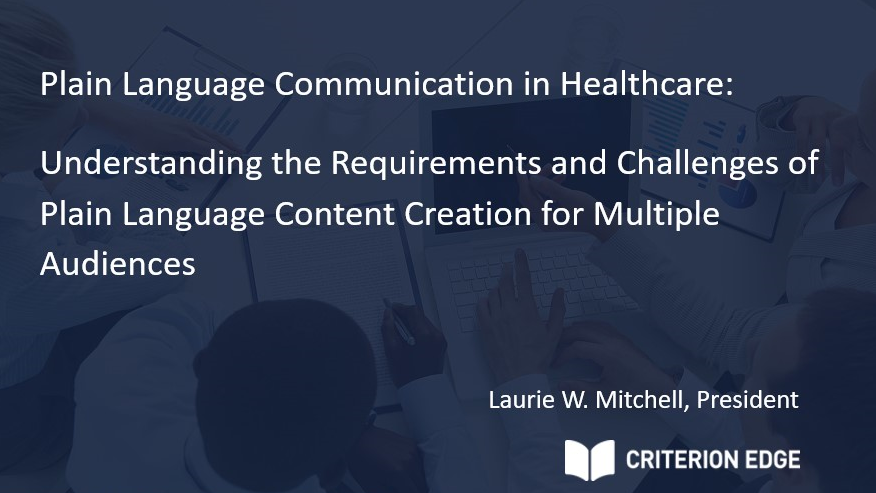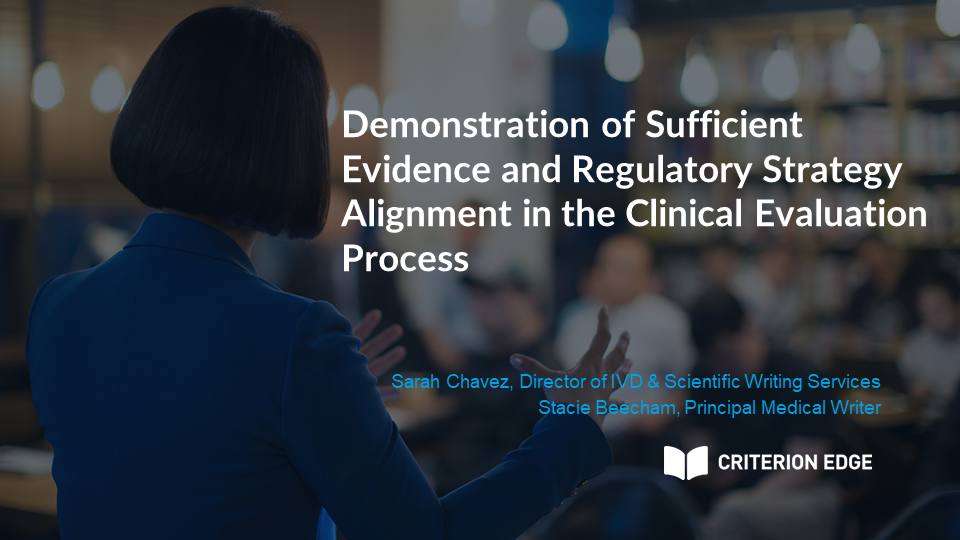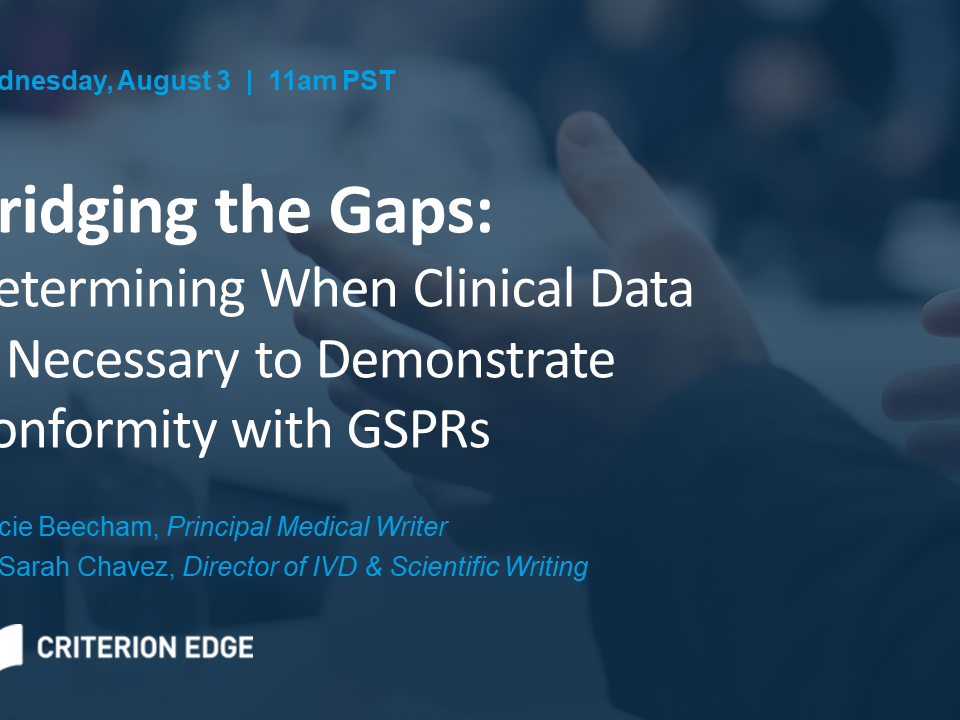Bridging the Gaps: Determining Clinical Data Sufficiency to Demonstrate Conformity with GSPRs
What do I do if there is no data for my device? This is a concern we hear quite often from clients. MDR states that device groups may not require clinical investigations if sufficient clinical evidence exists and the device meets specific criteria. In this webinar, we will discuss the concept of clinical data sufficiency. Specifically, we will explain the differences between a well-established technology and a legacy device as defined by MDR, and discuss strategies from both a regulatory and writer’s perspective.
Click here to watch the recording of this webinar.
There will be time at the end of the webinar to get your questions answered. Please submit any questions ahead of time while registering for this session so we have ample time to answer them thoughtfully. You may also send in your questions during the webinar.
Who should register for this webinar?
Those Regulatory, Quality and Clinical leaders and teams who develop, write, review, or approve clinical evaluation reports for MDR submissions, or anyone interested in learning more about these requirements. Those from the IVD space are welcome to attend as this information may also be relevant.
How to Empower Data-Driven Decisions in Your Organization
Every day, pharma and medical device companies need data from Systematic Literature Reviews (SLRs) to inform, direct, and help drive their internal processes and decisions. Of course, to comply with global regulatory requirements, clinical literature is also required. Conducting SLRs to search, screen, and extract data from published sources can present challenges to your team in terms of expertise (e.g., medical librarian), methodology, and resources. It takes trained people with the availability to screen, review, and analyze the literature.
Download our free white paper, Systematic Literature Review: How to Empower Data-Driven Decisions in Your Organization to read more on this topic.
You can also watch our webinar on this topic.
Our President Laurie Mitchell joins Jennifer Tetzlaff, Research Product Specialist with Evidence Partners, to talk to you about the following points:
- Examples of how the use of published data can support regulatory expectations
- When to conduct a systematic literature review
- Best practices for conducting a methodologically-sound SLR
- Use of available tools and technology





